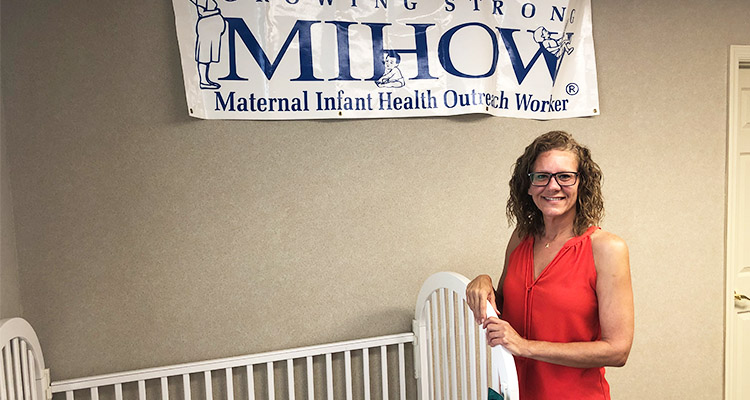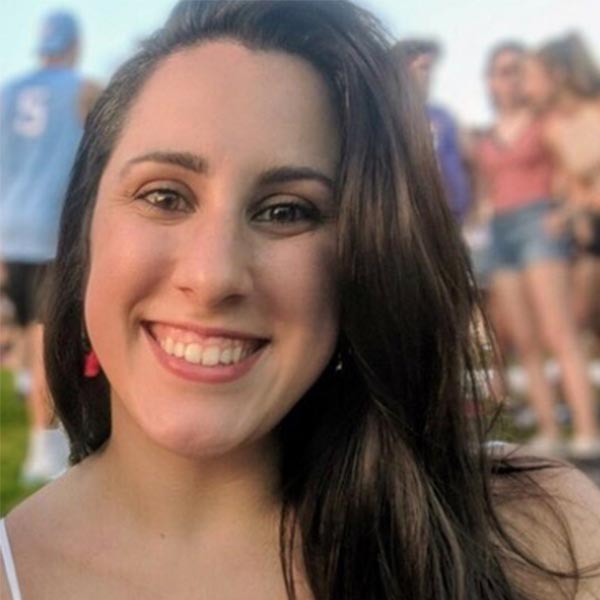EMPOWERING MOMS, HELPING KIDS
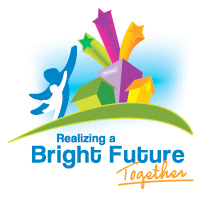 The Maternal Infant Health Outreach Worker Program (MiHOW) assists mothers with managing pregnancy and better childcare techniques, as well as simply being a place they can look to for help.
The Maternal Infant Health Outreach Worker Program (MiHOW) assists mothers with managing pregnancy and better childcare techniques, as well as simply being a place they can look to for help.
MiHOW parent educator, Brittani Rouse, has worked with the facility for almost two years and believes the program is very rare in terms of the approach they use to help families.
“MiHOW follows this strength-based approach, which, regardless of your circumstance, is there to empower moms who have terrible things going on or are dealing with Child Protective Services or are worried about how they are going to get their electric turned on,” said Rouse.
“I’m not there to do those things for them. I am there to help them find the resources that they need, so that they can accomplish those things on their own to have that feeling of empowerment.”
MiHOW is mother-focused, and employees like Rouse encourage them to do outdoor activities, take part in community events and attend MiHOW’S annual pool party.
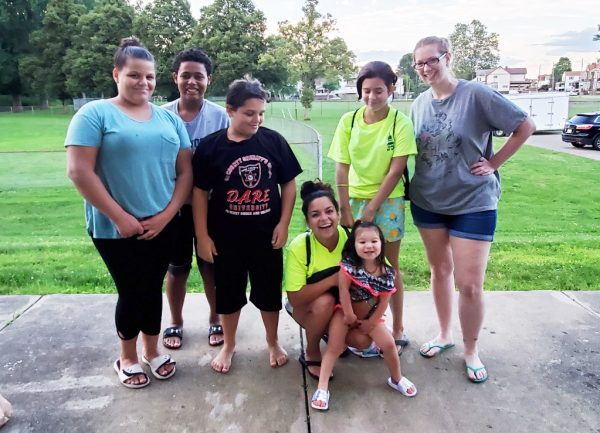
Though MiHOW primarily assists lower-income families, they are not an income-based program.
The program is voluntary, and mothers may request to take part in it to assist in the improvement of child welfare among many other things, according to Rouse.
“Let’s say you have stuff with CPS going on. It looks really good … to have someone coming in your home, even if it is only monthly or twice a month,” said Rouse.
Daniel Bishop of the West Virginia Department of Health and Human Resources (DHHR) has worked as a youth services caseworker for a year and a half.
The DHHR is a social services organization that offers a multitude of programs for families.
Bishop says the wellbeing of the children is the No. 1 thing on his mind going into work each day, as he is one of the people on the frontlines when it comes to placing children in a new home, foster care or a children’s shelter.
“Our mission is to ensure the safety, permanency and wellbeing of every child, and I believe that more and more entities are becoming involved with that process, which helps us detect more and more safety concerns,” said Bishop.
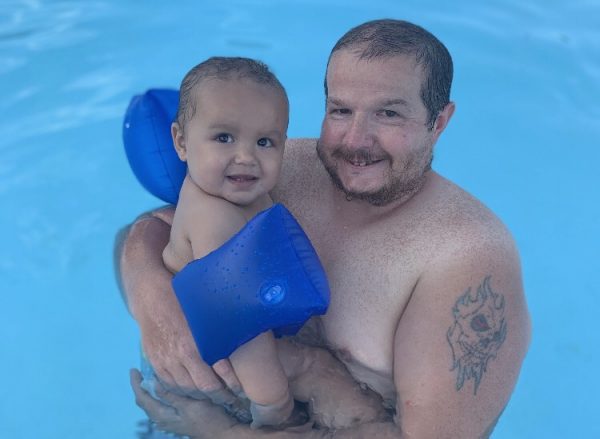
ABOVE AND BEYOND
Both Rouse and Bishop travel through the Ohio Valley and even beyond to assist these families and or their children.
Rouse travels primarily in the area of Mozart, Warwood and South Wheeling, while Bishop’s work is based mostly in Brooke County.
Bishop currently has five state ward cases on his workload, each with its own set of barriers.
“I have one state ward who is a 14-year-old boy who just went to a therapeutic foster home in Pennsylvania because there were no suitable options here in West Virginia with his past,” said Bishop.
“He has been on my caseload for over a year and to be able to see him so happy, (that) makes my job worth it.”
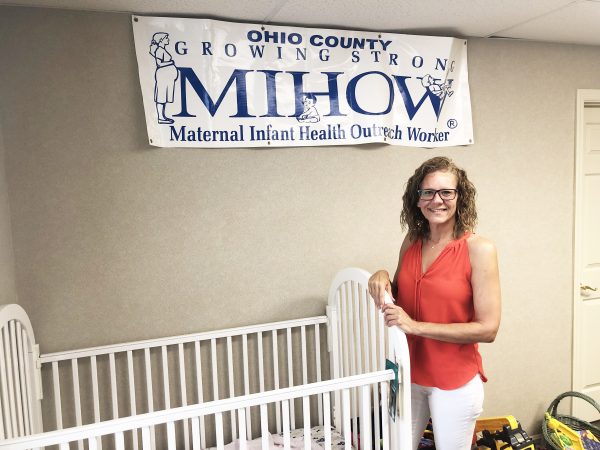
Rouse has also seen her fair share of children who need help.
Her job is to assist mothers through the difficulty of parenting in all of its aspects.
“I had a young mom who was not even 18. She had her first kid at 17 and right after that got pregnant again,” said Rouse.
“She was living with her boyfriend’s parents. The situation — it wasn’t good. She didn’t finish school, and she ended up moving to Columbus and got her GED and is now in some sort of CNA program and has her own apartment.”
Rouse also has people in the program who have yet to make such progress and, at times, it does get to her.
“There are days that I come home, and I’m just so overwhelmed by other people’s lives,” said Rouse.
She speaks of one family with triplets the same age as her 2-year-old daughter and how that does upset her at times.
“It’s so sad. To them, the kids are just there, and I know that she loves her kids,” said Rouse.
“They are super dirty, and they won’t even have diapers on. It’s very upsetting.”
Rouse holds hope for families like this and knows that she has an opportunity to provide them with stepping stones to be the best parent they can be to their children.
Bishop also finds joy in seeing these families make progress, whether it be gaining back custody of their child or simply getting them a new set of clothes.
“You see so many of these families struggle and continue to fight to stay together, and you find yourself becoming their cheerleader and celebrating any achievement or progress, no matter how small it may seem,” said Bishop.
“It’s very rewarding seeing the families get excited over doing something right and making progress and showing them that they are still supported and work with them during the bumps in the road.”
PASSION AND PERSPECTIVE
Stephanie Barnett, a supervisor with MiHOW, is also very passionate about this work and enjoys the fact that part of her job is getting these families involved with the community.
“We help families who are isolated in their homes and getting out to a mobile food market or the library or a festival gives them an opportunity to get out and enjoy themselves as a family,” said Barnett.
She also believes the community should take a step back and look at life from the perspective of those these programs help.
“The first thing that our community needs to do is understand life from a poverty perspective,” said Barnett.
“A lot of people will post things online like, ‘Oh, I need to head to work to pay for the people on welfare,’ but really, there’s a huge disconnect between what poverty is like versus what the public perceives.”
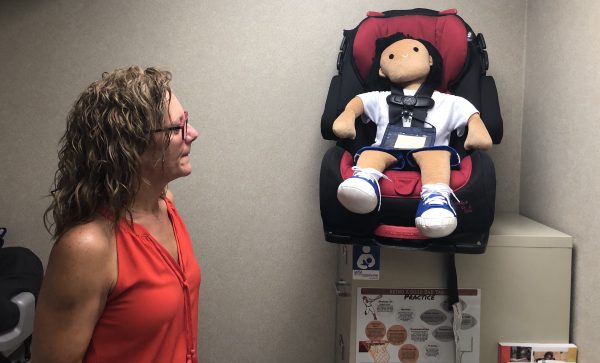
Barnett says stereotypes are a real issue in addressing impoverished community members and that many families are struggling to the point of eating just two meals a day.
“People just need to educate themselves on who poverty affects,” said Barnett.
“The vast majority of people on food stamps in our state are children, and they are white, and they are (American) citizens. Poverty is raw and unfiltered.”
She suggests that community members should rely on resources from federal websites that have a .org or .net at the end of the link.
Some ways you may help fight poverty in the Ohio Valley and assist your fellow neighbors is by donating food, money or your time to a local cause.
“If there is food you’re not using in your cupboard, donate it. If you have baby stuff, donate it,” said Barnett.
“There are several agencies that will clean those things and give them to those in need. If you want to volunteer, Catholic Charities, the Soup Kitchen, really any agency that is a nonprofit is going to utilize your help,” said Barnett.
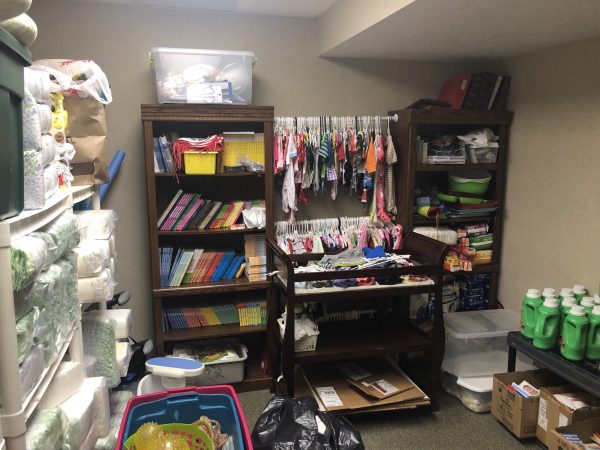
Barnett also requests that community members consider how others get into the multitude of bad situations that we ourselves may not be in.
“One of the quotes I use a lot is, ‘If you don’t understand someone’s behavior, then you don’t understand their story.’ It’s so easy to look at someone and judge and look at the drug addict and say that it started with a choice,” said Barnett.
“It’s so easy to look at a mother on welfare with four children and say she should have been on birth control. We don’t know what drove someone to get them into the situation they are in.”
Bishop believes that these adults and the children he serves deserve more attention and respect as well.
“Instead of stigmatizing them as being bad kids or lost causes, we as a community can work with the families and show them that they are not alone and that together, we can get them to where they want to be,” said Bishop.
“It’s a community effort, but I am grateful for the role that I get to play (while) working with the children and their families.”
To learn about programs provided by the WV DHHR, visit the website or stop by their headquarters located at 69 16th St. in Wheeling.
To take part in MiHOW, whether to volunteer or get involved with their program, contact Stephanie Barnett at mihow@npheadstart.org or 304-233-3290.
• With a background in journalism and being a true Wheeling native, Jessica Broverman was destined to work with Weelunk. She holds a degree in journalism with a minor in criminal justice and works with Williams Lea Tag as a legal proofreader. When she isn’t typing away for Weelunk or WLT, she is enjoying a coffee at one of her many favorite spots in Wheeling, spending time with friends, or having fun with her husband Zachary and their two cats, Proctor and Max.


